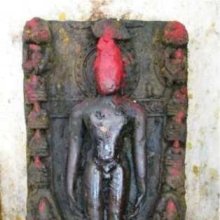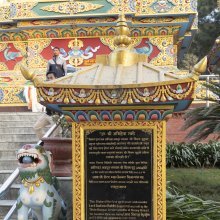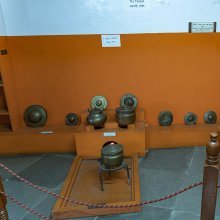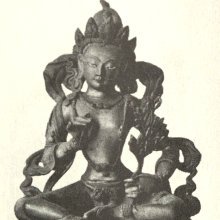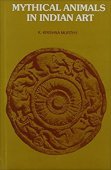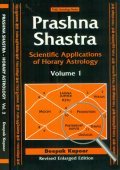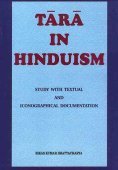Ma: 20 definitions
Introduction:
Ma means something in Buddhism, Pali, Hinduism, Sanskrit, the history of ancient India, Marathi, Hindi, biology, Tamil. If you want to know the exact meaning, history, etymology or English translation of this term then check out the descriptions on this page. Add your comment or reference to a book if you want to contribute to this summary article.
Images (photo gallery)
(+18 more images available)
In Hinduism
Vyakarana (Sanskrit grammar)
Source: Wikisource: A dictionary of Sanskrit grammarMa (म).—(l) the consonant म् (m) with the vowel अ (a) added for facility of utterance; cf T. Pr. I.2.1 ; (2) The substitute म (ma) for मस् (mas) of the 1st pers. pl. in the perfect tense cf. P परस्मैपदानां (parasmaipadānāṃ) ... णल्वमाः (ṇalvamāḥ) III. 4.82 and in the present tense also in the case of the root विद् (vid); (3) tad. affix म (ma) added to the word मध्य (madhya) in the Śaiṣika senses,and to the words द्यु (dyu) and द्रु (dru) in the sense of possession; cf. P.IV.3.8,V.2. 108.

Vyakarana (व्याकरण, vyākaraṇa) refers to Sanskrit grammar and represents one of the six additional sciences (vedanga) to be studied along with the Vedas. Vyakarana concerns itself with the rules of Sanskrit grammar and linguistic analysis in order to establish the correct context of words and sentences.
Purana and Itihasa (epic history)
Source: archive.org: Puranic EncyclopediaMa (म).—This letter has the following three meanings-Prosperity, honour and mother. (Agni Purāṇa, Chapter 348).

The Purana (पुराण, purāṇas) refers to Sanskrit literature preserving ancient India’s vast cultural history, including historical legends, religious ceremonies, various arts and sciences. The eighteen mahapuranas total over 400,000 shlokas (metrical couplets) and date to at least several centuries BCE.
In Buddhism
Tibetan Buddhism (Vajrayana or tantric Buddhism)
Source: academia.edu: A Critical Study of the Vajraḍākamahātantrarāja (II)Ma (म) is the name of a Vākchomā (‘verbal secrect sign’) which has its meaning defined as ‘mahiṣa’ according to chapter 8 of the 9th-century Vajraḍākamahātantrarāja, a scripture belonging to the Buddhist Cakrasaṃvara (or Saṃvara) scriptural cycle. These Vākchomās (viz., ma) are meant for verbal communication and can be regarded as popular signs, since they can be found in the three biggest works of the Cakrasaṃvara literature.

Tibetan Buddhism includes schools such as Nyingma, Kadampa, Kagyu and Gelug. Their primary canon of literature is divided in two broad categories: The Kangyur, which consists of Buddha’s words, and the Tengyur, which includes commentaries from various sources. Esotericism and tantra techniques (vajrayāna) are collected indepently.
India history and geography
Source: Cologne Digital Sanskrit Dictionaries: Indian Epigraphical GlossaryMa.—(IE 8-1), abbreviation of Maṅgala-vāra, Tuesday. (PJS), abbreviation of Mahattama, Mantrin, Mahetā (meaning ‘a clerk’ or ‘a teacher’ in Gujarātī), etc. (especially in medieval Jain inscriptions). Note: ma is defined in the “Indian epigraphical glossary” as it can be found on ancient inscriptions commonly written in Sanskrit, Prakrit or Dravidian languages.
--- OR ---
Mā.—(IE 8-6; SII 12; SITI), Tamil; a land measure equal to one-twentieth of a veli; also the name of a weight. Note: mā is defined in the “Indian epigraphical glossary” as it can be found on ancient inscriptions commonly written in Sanskrit, Prakrit or Dravidian languages.
--- OR ---
Ma.—ṟutu (CITD), same is maṟuturu. Note: ma is defined in the “Indian epigraphical glossary” as it can be found on ancient inscriptions commonly written in Sanskrit, Prakrit or Dravidian languages.
--- OR ---
Ma.—ṟuturu (IE 8-6; CITD); also called maṟutu, mattaru, etc.; Telugu; Kannaḍa mattar or mattaru; a certain land measure of uncertain area generally used as an equvalent of nivartana, different kinds being mentioned as kāl-maṟuturu, ghaḍa-maṟuturu, kommu-maṟutu, etc. Note: ma is defined in the “Indian epigraphical glossary” as it can be found on ancient inscriptions commonly written in Sanskrit, Prakrit or Dravidian languages.
--- OR ---
Ma.—ṉaiy-iṟai (SITI), Tamil; house-tax. Note: ma is defined in the “Indian epigraphical glossary” as it can be found on ancient inscriptions commonly written in Sanskrit, Prakrit or Dravidian languages.

The history of India traces the identification of countries, villages, towns and other regions of India, as well as mythology, zoology, royal dynasties, rulers, tribes, local festivities and traditions and regional languages. Ancient India enjoyed religious freedom and encourages the path of Dharma, a concept common to Buddhism, Hinduism, and Jainism.
Biology (plants and animals)
Source: Wisdom Library: Local Names of Plants and DrugsMa [மா] in the Tamil language is the name of a plant identified with Mangifera indica from the Anacardiaceae (Cashew) family. For the possible medicinal usage of ma, you can check this page for potential sources and references, although be aware that any some or none of the side-effects may not be mentioned here, wether they be harmful or beneficial to health.
Ma [ಮಾ] in the Kannada language, ibid. previous identification.
Source: Google Books: CRC World Dictionary (Regional names)Ma in Vietnam is the name of a plant defined with Vitex glabrata in various botanical sources. This page contains potential references in Ayurveda, modern medicine, and other folk traditions or local practices It has the synonym Vitex helogiton K. Schumann (among others).
Example references for further research on medicinal uses or toxicity (see latin names for full list):
· Philippine Journal of Science, C (1909)
· Phytologia (1979)
· Prodromus Florae Novae Hollandiae (1810)
· Philippine Journal of Science, C (1912)
· Flora of the British India (1885)
· Revista Sudamer. Bot. (1937)
If you are looking for specific details regarding Ma, for example pregnancy safety, extract dosage, diet and recipes, side effects, health benefits, chemical composition, have a look at these references.

This sections includes definitions from the five kingdoms of living things: Animals, Plants, Fungi, Protists and Monera. It will include both the official binomial nomenclature (scientific names usually in Latin) as well as regional spellings and variants.
Languages of India and abroad
Marathi-English dictionary
Source: DDSA: The Molesworth Marathi and English Dictionaryma (म).—m The twenty-fifth consonant. It corresponds with M.
--- OR ---
mā (मा).—f (S) A mother. 2 A name of Lakshmi.
Source: DDSA: The Aryabhusan school dictionary, Marathi-Englishma (म).—The twenty-fifth consonant.
--- OR ---
mā (मा).—f A mother. Gen- erally in poetry.
Marathi is an Indo-European language having over 70 million native speakers people in (predominantly) Maharashtra India. Marathi, like many other Indo-Aryan languages, evolved from early forms of Prakrit, which itself is a subset of Sanskrit, one of the most ancient languages of the world.
Sanskrit dictionary
Source: DDSA: The practical Sanskrit-English dictionaryMa (म).—1 Time.
2) Poison.
3) A magical formula.
4) The moon.
5) Name of Brahman; मकारेणोच्यते ब्रह्मा (makāreṇocyate brahmā).
6) Of Viṣṇu.
7) Of Śiva.
8) Of Yama.
9) (In prosody) A syllabic foot (gaṇa) consisting of three long syllables; मो भूमिस्त्रिगुरु श्रियं दिशति यः (mo bhūmistriguru śriyaṃ diśati yaḥ) V. Ratna.
1) Name of the fifth (madhyama) note in music.
-mam 1 Water.
2) Happiness, welfare.
Derivable forms: maḥ (मः).
--- OR ---
Mā (मा).—ind. A particle of prohibition (rarely of negation) usually joined with the Imperative; मद्वाणि मा कुरु विषादमनादरेण (madvāṇi mā kuru viṣādamanādareṇa) Bv.4.41; also (a) with the Aorist, when the augment अ (a) is dropped; क्लैब्यं मा स्म गमः पार्थ नैतत्त्वष्युपपद्यते (klaibyaṃ mā sma gamaḥ pārtha naitattvaṣyupapadyate) Bhagavadgītā (Bombay) 2.3; पापे रतिं मा कृथाः (pāpe ratiṃ mā kṛthāḥ) Bhartṛhari 2.77; मा मूमुहत् खलु भवन्तमनन्यजन्मा मा ते मलीमसविकारघना मतिर्भूत् (mā mūmuhat khalu bhavantamananyajanmā mā te malīmasavikāraghanā matirbhūt) Mālatīmādhava (Bombay) 1. 32; the अ (a) is sometimes retained; मा निषाद प्रतिष्ठां त्वमगमः शाश्वतीः समाः (mā niṣāda pratiṣṭhāṃ tvamagamaḥ śāśvatīḥ samāḥ) Rām. (b) the Imperfect (the augment being dropped here also); मा चैनमभिभाषथाः (mā cainamabhibhāṣathāḥ) Rām.1.2. 15; (c) the Future, or Potential mood, in the sense of 'lest', 'that not'; लघु एनां परित्रायस्व मा कस्यापि तपस्विनो हस्ते पतिष्यति (laghu enāṃ paritrāyasva mā kasyāpi tapasvino haste patiṣyati) Ś.2; मा कश्चिन्ममाप्यनर्थो भवेत् (mā kaścinmamāpyanartho bhavet) Pañcatantra (Bombay) 5; मा नाम देव्याः किमप्यनिष्टमुत्पन्नं भवेत् (mā nāma devyāḥ kimapyaniṣṭamutpannaṃ bhavet) K.37; the Imperative mood also is sometimes used for the Potential; त्वरतामार्यपुत्र एतां समाश्वासयितुं मास्या विकारो वर्धताम् (tvaratāmāryaputra etāṃ samāśvāsayituṃ māsyā vikāro vardhatām) M.4. (d) the Present Participle when a curse is implied; मा जीवन् यः परावज्ञादुःखदग्धोऽपि जीवति (mā jīvan yaḥ parāvajñāduḥkhadagdho'pi jīvati) Śiśupālavadha 2.45; or (e) with Potential passive participles; मैवं प्रार्थ्यम् मा (maivaṃ prārthyam mā) is sometimes used without any verb; मा तावत् (mā tāvat) 'oh ! do not (say or do) so'; मा मैवम् (mā maivam); मा नाम रक्षिणः (mā nāma rakṣiṇaḥ) Mṛcchakaṭika 3 'may it not be the police'; see under नाम (nāma). Sometimes मा (mā) is followed by स्म (sma) and is used with the Aorist or Imperfect with the augment dropped, and rarely with the Potential mood; क्लैब्यं मा स्म गमः पार्थ (klaibyaṃ mā sma gamaḥ pārtha) Bhagavadgītā (Bombay) 2.3; मा स्म प्रतीपं गमः (mā sma pratīpaṃ gamaḥ) Ś.4.17; मा स्म सीमन्तिनी काचिज्जनयेत् पुत्रमीदृशम् (mā sma sīmantinī kācijjanayet putramīdṛśam).
--- OR ---
Mā (मा).—
1) The goddess of wealth, Lakṣmī; तमाखुपत्रं राजेन्द्र भज माज्ञानदायकम् (tamākhupatraṃ rājendra bhaja mājñānadāyakam) Subhāṣ.
2) A mother.
3) A measure.
--- OR ---
Mā (मा).—2 P., 3, 4 Ā. (māti, mimīte or mīyate, mita)
1) To measure; न्यधित मिमान इवावनिं पदानि (nyadhita mimāna ivāvaniṃ padāni) Śiśupālavadha 7.13;9.2.
2) To measure or mark off, limit; see मित (mita).
3) To compare with (in size), measure by any standard; पुरः सखीनाममिमीत लोचने (puraḥ sakhīnāmamimīta locane) Kumārasambhava 5.15.
4) To be in, find room or space in, be contained or comprised in; तनौ ममुस्तत्र न कैटभद्विषस्तपोधनाभ्यागमसंभवा मुदः (tanau mamustatra na kaiṭabhadviṣastapodhanābhyāgamasaṃbhavā mudaḥ) Śiśupālavadha 1.23; वृद्धिं गतेऽप्यात्मनि नैव मान्तीः (vṛddhiṃ gate'pyātmani naiva māntīḥ) 3.73;1.5;14.75;13.2;5.44; माति मातुमशक्योऽपि यशोराशिर्यदत्र ते (māti mātumaśakyo'pi yaśorāśiryadatra te) K. P.1.
5) To prepare, arrange.
6) To infer, conclude.
7) To form, make, build, construct.
8) To assign, mete out, apportion.
9) To show, display.
1) To roar, sound. -Caus. (māpayati-te) To cause to be measured, measure or mete out; एतेन मापयति भित्तिषु कर्ममार्गम् (etena māpayati bhittiṣu karmamārgam) Mṛcchakaṭika 3.16. -Desid. (mitsati-te) To wish to measure &c.
Source: Cologne Digital Sanskrit Dictionaries: Edgerton Buddhist Hybrid Sanskrit DictionaryMa (म).—m.c. for neg. mā, § 3.27.
Source: Cologne Digital Sanskrit Dictionaries: Shabda-Sagara Sanskrit-English DictionaryMa (म).—The twenty-fifth consonant of the Nagari alphabet, corresponding to the letter M.
--- OR ---
Ma (म).—m.
(-maḥ) 1. A name of Brahma. 2. Siva. 3. Vishnu. 4. Yama. 5. Time, season. 6. Poison, venom. 7. A magical or mystical verse or formula. 8. The moon. 9. The abbreviated name of the fourth note of the gamut. f. (mā) 1. A name of Lakshmi. 2. A mother. 3. Measure. 4. Light, lustre. 5. Knowledge. 6. Binding, tying. 7. Death. 8. A woman’s waist. n.
(-maṃ) 1. Good-fortune, auspiciousness. 2. Water. E. mā to measure, ka aff.; or man to worship, &c., aff. ḍa.
--- OR ---
Mā (मा).—r. 2nd. cl. (māti) r. 3rd cl. (mimīte) r. 4th cl. (māyate) 1. To mete, to measure. 2. To be contained: with an prefixed, to infer, to conclude; with upa, to resemble; with pari, to measure; with pra, to be evidence or authority; with sama, to compare, to equalize.
--- OR ---
Mā (मा).—Ind. 1. A prohibitive and negative particle. 2. A particle implying doubt. E. mā to measure, aff. kkip; this particle is chiefly prexfied to verbs, in the imperative mood, as mākuru do not do, (any act.) &c.; it is also read sometimes, māṅ the final being redundant.
--- OR ---
Mā (मा).—f.
(-mā) 1. Lakshmi. 2. A mother. 3. A measure. 4. An elephant.
Source: Cologne Digital Sanskrit Dictionaries: Benfey Sanskrit-English DictionaryMā (मा).—ii. 2, [Parasmaipada.], ii. 3, mimā, mimī, and † i. 4, [Ātmanepada.] 1. To mete, to measure,
— With anu anu, 1. To infer, to conclude, Mahābhārata 3, 12470; Böhtl. Ind. Spr. 610 (karmāmaneya, i. e. karman-, To be found out by one’s actions, cf. [Hitopadeśa] iv. [distich] 100, where kāryānº, to be inferred from the effects); also pass. (mīya), in the signification of the active, Mahābhārata 1, 7043 (regularly, [Kirātārjunīya] 5, 47). 2. To reconcile, Mahābhārata 3, 286.
— With upa upa, 1. To admeasure, to give,
— With ni ni; comp. ptcple. pf. pass. dus-nimita, adj. Put down badly, [Raghuvaṃśa, (ed. Stenzler.)] 7, 10. nimeya, Measurable, Mahābhārata 13, 2676.
— With nis nis, 1. To build, [Rāmāyaṇa] 1, 5, 6. 2. To create, [Mānavadharmaśāstra] 1, 13; [Vikramorvaśī, (ed. Bollensen.)] [distich] 9. 3. To cause, [Pañcatantra] v. [distich] 67. 4. To make, [Hitopadeśa] 48, 2, M. M.; Mahābhārata 1, 2026. 5. To form, [Mānavadharmaśāstra] 1, 21; to compose, [Hitopadeśa] i. [distich] 46, M.M.
— With abhinis abhi-nis, To create, [Kirātārjunīya] 5, 3.
— With vinis vi-nis, 1. To create, [Nala] 17, 7. 2. To prepare, [Rāmāyaṇa] 1, 13, 45.
— With pari pari, parimita, 1. Limited, [Bhartṛhari, (ed. Bohlen.)] 3, 50. 2. Moderate, [Rāmāyaṇa] 3, 55, 20. 3. Measured. 4. Regulated. 5. Joined. parimeya, Measurable, few, [Rājataraṅgiṇī] 4, 414. Comp. A-, immeasurable, Mahābhārata 1, 2455.
— With pra pra, To understand, [Hitopadeśa] 74, 7. pramita, 1. Measured. 2. Known. Comp. ptcple. of the fut. pass. a-prameya, adj. Unfathomable, [Mānavadharmaśāstra] 1, 3.
— With prati prati, To compare, [Rājataraṅgiṇī] 5, 482.
— With sam sam, saṃmita, 1. Like, resembling. 2. Of equal measure, conformable, [Sāvitryupākhyāna] 5, 30. 3. Reaching to, [Mānavadharmaśāstra] 2, 46. 4. Measured. Comp. Mṛtyu-, adj. death-like,
— Cf. [Latin] im-mānis, metior (a [denominative.] of an old ptcple. pres., cf. mensus), mētare, manus, materia, maturus, imitari, mos, modus, meditari; [Old High German.] mez; [Old Norse.] met; [Gothic.] mitan; A. S. metan, maedhian.
--- OR ---
Mā (मा).—ii. 3, mimā, mimī, [Ātmanepada.] (ved. [Parasmaipada.]). To sound, to roar.
--- OR ---
Mā (मा).—indecl. A prohibitive particle. 1. No, with imperat., also with imperf. and aor., which then drop their augment, [Vikramorvaśī, (ed. Bollensen.)] [distich] 110; in epic poetry it is sometimes retained,
— Cf. perhaps [Latin] ne.
Source: Cologne Digital Sanskrit Dictionaries: Cappeller Sanskrit-English DictionaryMa (म).—[pronoun] stem of 1^st [person or personal]
--- OR ---
Mā (मा).—1. ([adverb] & [conjunctive]) not, that not, lest, would that not, [with] imperat. or an augmentless form of a past tense (±sma); rarely with an optative; or with aor. or [future]; often without verb.
— maivam or mā tāvat may it not be so; mo ( = mā u) and not, neither (prohib.).
--- OR ---
Mā (मा).—2. mimīte (mamāti & māti), [participle] mita (q.v.) measure, mete, compare with ([instrumental]); measure across i.e. pass through, traverse; measure out = apportion, give, grant; help a [person or personal] ([accusative]) to ([dative]); prepare, arrange, form, make, create, develop, display (also refl.) show, manifest; conclude, infer; [intransitive] ([present] māti) correspond in measure, find room in ([locative]); [with] na be beside one’s self with ([instrumental]). [Causative] māpayati, te cause to be measured or built, build, erect.
--- OR ---
Mā (मा).—3. [feminine] measure.
--- OR ---
Mā (मा).—4. mimāti bellow, roar, low; [with] anu & ā bellow etc. towards ([accusative]).
--- OR ---
Mā (मा).—5. mayate [with] ni exchange, barter for ([instrumental]).
Source: Cologne Digital Sanskrit Dictionaries: Monier-Williams Sanskrit-English Dictionary1) Ma (म):—1. ma the labial nasal.
2) 2. ma m. (in prosody) a molossus.
3) 3. ma base of the 1st [person] [pronoun] in [accusative] sg. mām or mā
4) [instrumental case] mayā
5) [dative case] mahyam or me
6) [ablative] mat or mad
7) [genitive case] mama or me (for the enclitic forms cf. [Pāṇini 8-1, 22 etc.])
8) cf. s. mad; [Zend] ma; [Greek] ἐ-μέ, μέ, [Latin] me, mihi etc.
9) 4. ma m. time, [cf. Lexicographers, esp. such as amarasiṃha, halāyudha, hemacandra, etc.]
10) poison, [cf. Lexicographers, esp. such as amarasiṃha, halāyudha, hemacandra, etc.]
11) a magic formula, [cf. Lexicographers, esp. such as amarasiṃha, halāyudha, hemacandra, etc.]
12) (in music) Name of the 4th note of the scale (abbreviated for madhyama)
13) the moon, [cf. Lexicographers, esp. such as amarasiṃha, halāyudha, hemacandra, etc.]
14) Name of various gods (of Brahmā, Viṣṇu, Śiva, and Yama), [cf. Lexicographers, esp. such as amarasiṃha, halāyudha, hemacandra, etc.]
15) Mā (मा):—[from ma] a f. a mother, [cf. Lexicographers, esp. such as amarasiṃha, halāyudha, hemacandra, etc.]
16) [v.s. ...] measure, [cf. Lexicographers, esp. such as amarasiṃha, halāyudha, hemacandra, etc.]
17) [v.s. ...] authority (-tva n.), [Nyāyamālā-vistara]
18) [v.s. ...] light, [cf. Lexicographers, esp. such as amarasiṃha, halāyudha, hemacandra, etc.]
19) [v.s. ...] knowledge, [cf. Lexicographers, esp. such as amarasiṃha, halāyudha, hemacandra, etc.]
20) [v.s. ...] binding, fettering, [cf. Lexicographers, esp. such as amarasiṃha, halāyudha, hemacandra, etc.]
21) [v.s. ...] death, [cf. Lexicographers, esp. such as amarasiṃha, halāyudha, hemacandra, etc.]
22) [v.s. ...] a woman’s waist, [cf. Lexicographers, esp. such as amarasiṃha, halāyudha, hemacandra, etc.]
23) Ma (म):—n. (connected with √3. mā) happiness, welfare, [cf. Lexicographers, esp. such as amarasiṃha, halāyudha, hemacandra, etc.]
24) water, [cf. Lexicographers, esp. such as amarasiṃha, halāyudha, hemacandra, etc.]
25) Mā (मा):—1. mā ind. (causing a following ch to be changed to cch, [Pāṇini 6-1, 74]) not, that not, lest, would that not, [Ṛg-veda] etc. etc.
26) a particle of prohibition or negation = [Greek] μή, most commonly joined with the Subjunctive id est. the augmentless form of a past tense ([especially] of the [Aorist] e.g. mā no vadhīr indra, do not slay us, O Indra, [Ṛg-veda]; mā bhaiṣīḥ or mā bhaiḥ, do not be afraid, [Mahābhārata]; tapovana-vāsinām uparodho mā bhūt, let there not be any disturbance of the inhabitants of the sacred grove, [Śakuntalā]; often also with sma e.g. mā sma gamaḥ, do not go, [Bhagavad-gītā] cf. [Pāṇini 3-3, 175; 176] in the sense of, ‘that not, lest’ also yathā mā e.g. yathā mā vo mṛtyuḥ pari-vyatkā iti, that death may not disturb you, [Praśna-upaniṣad]; or māyathā e.g. mā bhūt kālātyayo yathā, lest there be any loss of time, [Rāmāyaṇa]; mā na with [Aorist] [subjunctive] = Ind, without a negative e.g. mā dviṣo na vadhīr mama, do slay my enemies, [Bhaṭṭi-kāvya] cf. [Vāmana’s Kāvyālaṃkāravṛtti v, 1, 9]; rarely with the augmentless [imperfect tense] with or without sma e.g. maīnam abhibhāṣathāḥ, do not speak to him, [Rāmāyaṇa]; mā sma karot, let him not do it, [Pāṇini 6-4, 74 [Scholiast or Commentator]]; exceptionally also with the Ind. of the [Aorist] e.g., mā, kālas tvām aty-agāt, may not the season pass by thee, [Mahābhārata]; cf. [Pāṇini 6-4, 75 [Scholiast or Commentator]])
27) or with the [imperative] (in, [Ṛg-veda only viii, 103, 6], mā no hṛṇītām [Sāma-veda] hṛṇītās agniḥ, may Agni not be angry with us; but very often in later language e.g. mā kranda do not cry, [Mahābhārata]; gaccha vā mā vā, you can go or not go, [ib.]; ripur ayam mājāyatām, may not this foe arise, [Śāntiśataka]; also with sma e.g. mā sva kiṃ cid vaco vada do not speak a word, [Mahābhārata])
28) or with the [Potential] (e.g. mā yamam paśyeyam, may l not See Yama; [especially] mābhujema in [Ṛg-veda])
29) or with the Prec. (only once in mā bhūyāt, may it not be, [Rāmāyaṇa [B.] ii, 75, 45])
30) or sometimes with the [future] (= that not, lest e.g. mātvāṃ śapsye, lest I curse thee, [Mahābhārata] cf. [Vopadeva xxv, 27])
31) or with a participle (e.g. mājīvanyo duḥkhadagdho jīvati, he ought not to live who lives consumed by pain, [Pañcatantra]; gataḥ sa mā, he cannot have gone, [Kathāsaritsāgara]; maīvamprārthyam, it must not be so requested, [Bhāgavata-purāṇa])
32) sometimes for the simple negative na (e.g. katham mā bhūt, how may it not be, [Kathāsaritsāgara]; mā gantum arhasi, thou oughtest not to go, R; mā bhūd āgataḥ, can he not id est. surely he must have arrived, [Amaru-śataka])
33) occasionally without a verb (e. [gana] mā śabdaḥ or śabdam, do not make a noise, [Harivaṃśa]; mā nāma rakṣiṇaḥ, may it not be the watchmen, [Mṛcchakaṭikā]; mā bhavantam analaḥ pavano vā, may not fire or wind harm thee, [Vāmana’s Kāvyālaṃkāravṛtti v, 1, 14]; [especially] = not so e.g. mā prātṛda, not so, O Pr°, [Śatapatha-brāhmaṇa]; in this meaning also mā mā, mā maivam, mā tāvat)
34) in the Veda often with u (mo) = and not, nor (e.g. mā maghonaḥ pari khyatam mo asmākam ṛṣṇām, do not forget the rich lords nor us the poets, [Ṛg-veda v, 65, 6]; and then usually followed by ṣu = su e.g. mo ṣu ṇaḥ nirṛtir vadhīt, let not N° on any account destroy us, [i, 38, 6])
35) in [Śatapatha-brāhmaṇa] sma mā-mo sma = neither nor (in a prohibitive sense).
36) 2. mā [class] 3. [Parasmaipada] mimāti ([according to] to [Dhātupāṭha xxv, 6] [Ātmanepada] mimīte, [Sāma-veda] mimeti; [Potential] mimīyat, [Kāṭhaka]; [perfect tense], mimāya; [Aorist] amīmet [subjunctive] mīmayat; [infinitive mood] mātavai),
—to sound, bellow, roar, bleat ([especially] said of cows, calves, goats etc.), [Ṛg-veda; Atharva-veda; Brāhmaṇa] :—[Intensive], only [present participle] memyat, bleating (as a goat), [Ṛg-veda i, 162, 2.]
37) 3. mā [class] 2. [Parasmaipada] ([Dhātupāṭha xxiv, 54]) māti;—[class] 3. [Ātmanepada] ([xxv, 6]) mimīte;—[class] 4. [Ātmanepada] ([xxvi, 33]) māyate ([Vedic or Veda] and [Epic] also mimāti [Potential] mimīyāt [imperative], mimīhi; [Potential] mimet, [Brāhmaṇa]; [perfect tense] mamau, mame, mamire, [Ṛg-veda]; [Aorist] amāsi [subjunctive] māsātai, [Atharva-veda]; amāsīt [grammar]; Prec. māsīṣṭa, meyāt, [ib.]; [future] mātā; māsyati, māsyate, [ib.]; [infinitive mood] me -mai, [Ṛg-veda]; mātum, [Brāhmaṇa]; [indeclinable participle] mitvā, -māya, [Ṛg-veda] etc. etc.),
—to measure, mete out, mark off, [Ṛg-veda] etc. etc.;
—to measure across = traverse, [Ṛg-veda];
—to measure (by any standard), compare with ([instrumental case]), [Kumāra-sambhava];
— (māti) to correspond in measure (either with [genitive case], ‘to be large or long enough for’ [Bhāgavata-purāṇa]; or with [locative case], ‘to find room or be contained in’ [Inscriptions; Kāvya literature]; or with na and [instrumental case], ‘to be beside one’s self with’ [Vikramāṅkadeva-carita, by Bilhaṇa; Kathāsaritsāgara]);
—to measure out, apportion, grant, [Ṛg-veda];
—to help any one ([accusative]) to anything ([dative case]), [ib., i, 120, 9];
—to prepare, arrange, fashion, form, build, make, [Ṛg-veda];
—to show, display, exhibit (amimīta, ‘he displayed or developed himself’, [iii, 29, 11]), [ib.];
— (in [philosophy]) to infer, conclude;
—to pray (yācñā-karmaṇi), [Naighaṇṭuka, commented on by Yāska iii, 59] :—[Passive voice] mīyate ([Aorist] amāyi);
—to be measured etc., [Ṛg-veda]; etc. [Causal], māpayati, te ([Aorist] amīmapat, [Pāṇini 7-4, 93], [vArttika] 2 [Patañjali]),
—to cause to be measured or built, measure, build, erect, [Upaniṣad; Gṛhya-sūtra; Mahābhārata] etc.:—[Desiderative] mitsati, te, [Pāṇini 7-4, 54; 58] (cf. nir-√mā) :—[Intensive] memīyate[Pāṇini 6-4, 66.]
38) cf. [Zend] mā; [Greek] μέτρον, μετρέω; [Latin] mētior, mensus, mensura; [Slavonic or Slavonian] mĕra; [Lithuanian] mērá.
39) 4. mā f. See under 4. ma, p. 771, col. 2.
Source: Cologne Digital Sanskrit Dictionaries: Yates Sanskrit-English Dictionary1) Ma (म):—m. The 25th consonant and last letter of the labial class.
2) (maḥ) 1. m. Brahmā; Shiva; Vishnu; Yama; time; poison; magic; verse; moon; fourth note of the gamut. f. (mā) Lakshmī; mother; light; measure; death; woman’s waist. n. Fortune; water.
3) Mā (मा):—(la) māti 2. a. (li, ṅa) mimīte 3. d. (ya, ṅa) māyate 4. d. To mete, to measure. With anu to infer; upa to resemble; pari to measure; pra to be evidence, witness.
4) adv. A prohibitive, not, do not.
[Sanskrit to German]
Sanskrit, also spelled संस्कृतम् (saṃskṛtam), is an ancient language of India commonly seen as the grandmother of the Indo-European language family (even English!). Closely allied with Prakrit and Pali, Sanskrit is more exhaustive in both grammar and terms and has the most extensive collection of literature in the world, greatly surpassing its sister-languages Greek and Latin.
Hindi dictionary
Source: DDSA: A practical Hindi-English dictionaryMa (म) [Also spelled m]:—-the fifth and final letter of the fifth pentad (i.e. [pavarga]) of the Devnagri: alphabet.
...
Kannada-English dictionary
Source: Alar: Kannada-English corpusMa (ಮ):—
1) [noun] (gen. pronounced with the vowel 'ಅ') the thirty ninth letter of Kannaḍa alphabet and the twenty fifth consonant.
2) [noun] the moon.
3) [noun] Brahma, the creator of the universe.
4) [noun] Viṣṇu.
5) [noun] Śiva.
6) [noun] Yama, the God for righteousness and the Ordainer.
7) [noun] time; duration of time.
8) [noun] any of the poisonous substance.
9) [noun] water.
10) [noun] welfare; welbeing.
11) [noun] (pros.) a metre having three long syllables (—-).
12) [noun] (mus.) the fifth note in the scale of C major; G.
13) [noun] (math.) a symbol for the number five.
--- OR ---
Mā (ಮಾ):—[noun] an elephant.
--- OR ---
Mā (ಮಾ):—[noun] (used in praising a performer) well done!; very good!; excellent!; Bravo!.
--- OR ---
Mā (ಮಾ):—[noun] = ಮಾಂ [mam].
--- OR ---
Mā (ಮಾ):—
1) [adjective] big; huge; large.
2) [adjective] superior; excellent.
3) [adjective] abundant; in great amount; profuse.
--- OR ---
Mā (ಮಾ):—
1) [noun] a woman as related to her children; a mother.
2) [noun] Lakṣmi, the Goddess of Wealth.
--- OR ---
Mā (ಮಾ):—[noun] an indeclinable used to express one’s dissent, restriction against something, decision against requirement order (not to do), etc.; 'no!'; 'don't do!'.
Kannada is a Dravidian language (as opposed to the Indo-European language family) mainly spoken in the southwestern region of India.
Tamil dictionary
Source: DDSA: University of Madras: Tamil LexiconMa (ம) . The compound of ம் [m] and அ. [a.]
--- OR ---
Ma (ம) noun (Music) The symbol of the fourth note of the gamut, madhyama; மத்திம மெனப்படும் இசையினெழுத்து. [mathima menappadum isaiyinezhuthu.] (சிலப்பதிகாரம் அரும்பதவுரை [silappathigaram arumbathavurai] 3, 67, அரும். [arum.])
--- OR ---
Ma (ம) noun < ma.
1. Moon; சந்திரன். (இலக்கியச் சொல்லகராதி) [santhiran. (ilakkiyas sollagarathi)]
2. Śiva; சிவன். (இலக்கியச் சொல்லகராதி) [sivan. (ilakkiyas sollagarathi)]
3. Yama; இயமன். (இலக்கியச் சொல்லகராதி) [iyaman. (ilakkiyas sollagarathi)]
4. Time, காலம். (யாழ்ப்பாணத்து மானிப்பாயகராதி) [kalam. (yazhppanathu manippayagarathi)]
5. Brahmā; பிரமன். (யாழ்ப்பாணத்து மானிப்பாயகராதி) [piraman. (yazhppanathu manippayagarathi)]
6. Viṣṇu; விட்டுணு. (யாழ்ப்பாணத்து மானிப்பாயகராதி) [vittunu. (yazhppanathu manippayagarathi)]
7. Poison; நஞ்சு. (யாழ்ப்பாணத்து மானிப்பாயகராதி) [nanchu. (yazhppanathu manippayagarathi)]
--- OR ---
Mā (மா) . The compound of ம் [m] and ஆ. [a.]
--- OR ---
Mā (மா) noun
1. Animal, beast; விலங்கு. மாவுமாக்களு மையறி வினவே [vilangu. mavumakkalu maiyari vinave] (தொல். பொ. [thol. po.] 587).
2. Horse; குதிரை. அமரகத் தாற்றறுக்குங் கல்லாமா [kuthirai. amaragath tharrarukkung kallama] (திருக்குறள் [thirukkural], 814).
3. Elephant; யானை. (அகராதி நிகண்டு) [yanai. (agarathi nigandu)]
4. Male of horse, hog or elephant; குதிரை, பன்றி, யானைகளின் ஆண். (சூடாமணிநிகண்டு) [kuthirai, panri, yanaigalin an. (sudamaninigandu)]
5. Leo of the Zodiac; சிங்கராசி. (சூடாமணிநிகண்டு) [singarasi. (sudamaninigandu)]
6. Bee; வண்டு. மாவுடைத் தார் [vandu. mavudaith thar] (புறப்பொருள்வெண்பாமாலை. [purapporulvenpamalai.] 6, 7, கொளு [kolu]).
7. Swan; அன்னம். மடநடை மாயினம் [annam. madanadai mayinam] (கலித்தொகை [kalithogai] 92, 17).
8. Human being born with the shape of an animal; விலங்கு வடிவமாய்ப் பிறக்கும் மானுடம். மாவு மருளு முளப்பட வாழ்நர்க் கெண்பேரெச்சம் [vilangu vadivamayp pirakkum manudam. mavu marulu mulappada vazhnark kenperecham] (புறநானூறு [purananuru] 28).
9. Mango. See மாமரம். (பிங்கலகண்டு) [mamaram. (pingalagandu)]
10. Calling, call; அழைக்கை. (பிங்கலகண்டு) [azhaikkai. (pingalagandu)]
11. Cloth; சீலை. (அகராதி நிகண்டு) [silai. (agarathi nigandu)]
12. Nail; ஆணி. (அகராதி நிகண்டு) [ani. (agarathi nigandu)]
13. Bearing with patience; துன்பம் பொறுக்கை. (அரு. நி.) [thunpam porukkai. (aru. ni.)] — particle An expletive; ஓர் அசைச்சொல். விளிந்தன்று மாதவ [or asaichol. vilinthanru mathava] (நற்றிணை [narrinai] 178).
--- OR ---
Mā (மா) < mā. noun
1. Lakṣmī; இலக்குமி. மாமறுத்த மலர்மார்பின் [ilakkumi. mamarutha malarmarpin] (புறநானூறு [purananuru] 7).
2. Treasure; செல்வம். ((சங்கத்தகராதி) தமிழ்சொல்லகராதி) [selvam. ((sangathagarathi) thamizhsollagarathi)]
3. Sarasvatī; சரசுவதி. ((சங்கத்தகராதி) தமிழ்சொல்லகராதி) [sarasuvathi. ((sangathagarathi) thamizhsollagarathi)]
4. Degree of fineness of gold assayed by a touch-stone; மாற்று. ஓட்டறும் செம்பொன் னொக்க வொருமாவுங் குறையாமல் [marru. ottarum sembon nokka vorumavung kuraiyamal] (பெரியபுராணம் ஏயர்கோன். [periyapuranam eyarkon.] 137).
5. A measure of weight; ஒரு நிறை. [oru nirai.] (தொல். எழுத். [thol. ezhuth.] 170, உரை. [urai.])
6. [Telugu: māvu, M. mā.] The fraction ¹⁄₂₀; கீழ்வாயிலக்கத் தொன்று. (பிங்கலகண்டு) [kizhvayilakkath thonru. (pingalagandu)]
7. A superficial measure = ¹⁄₂₀ vēli = 100 kuḻi; நிலவளவைவகை. மாநிறை வில்லதும் பன்னாட் காகும் [nilavalavaivagai. manirai villathum pannad kagum] (புறநானூறு [purananuru] 184).
8. Field; வயல். (பிங்கலகண்டு) [vayal. (pingalagandu)]
9. Land, tract of land; நிலம். மருதமாவின் றலை யன [nilam. maruthamavin ralai yana] (இரகுவமிசம் நாட்டுப். [iraguvamisam nattup.] 56).
10. Dislike, disgust; வெறுப்பு. (சூடாமணிநிகண்டு) [veruppu. (sudamaninigandu)]
11. Mirage; கானல். (அரு. நி.) [kanal. (aru. ni.)] — particle An indeclinable, in Sanskrit meaning 'no'; ஆகாது என்ற பொருளில் வரும் ஒரு வடசொல். [agathu enra porulil varum oru vadasol.] (சீவகசிந்தாமணி [sivagasindamani] 484, உரை. [urai.])
--- OR ---
Mā (மா) noun < mahā.
1. Greatness; பெருமை. அங்கண்மா ஞாலம் [perumai. anganma gnalam] (நாலடியார் [naladiyar], 148).
2. Strength; வலி. (பிங்கலகண்டு) [vali. (pingalagandu)]
--- OR ---
Mā (மா) noun cf. māyā.
1. Beauty; அழகு. மாவீழ் பள்ளி [azhagu. mavizh palli] (ஞானாமிர்தம் [gnanamirtham] 10, 6).
2. Blackness; கருமை. மாயிரும் பீலி [karumai. mayirum pili] (சிலப்பதிகாரம் அரும்பதவுரை [silappathigaram arumbathavurai] 2, 53).
3. Colour; நிறம். காமரு குவளைக் கழுநீர் மாமலர் [niram. kamaru kuvalaig kazhunir mamalar] (சிலப்பதிகாரம் அரும்பதவுரை [silappathigaram arumbathavurai] 4, 40).
4. Paleness caused by love-sickness; மாமைநிறம். அம்மா வரிவை [mamainiram. amma varivai] (புறநானூறு [purananuru] 147).
--- OR ---
Mā (மா) noun probably from மாய்-. [may-.]
1. Flour, meal, dough, powder; அரிசி முதலியவற்றின் மாவு. காயங் கொண்டன மாவிருந்து [arisi muthaliyavarrin mavu. kayang kondana mavirunthu] (பத்துப்பாட்டு: மலை [pathuppattu: malai] 126).
2. Dust; துகள். [thugal.] (W.)
3. [Telugu: māvī.] After-birth, Secundines; நஞ்சுக்கொடி. [nanchukkodi.] (W.)
--- OR ---
Mā (மா) noun < mā. (Logic.) Source of perception; authority; பிரமாணம். தெளிந்ததெல் லாம் மாவென்று கொண்டு [piramanam. thelinthathel lam mavenru kondu] (நீலகேசி [nilagesi], 5).
--- OR ---
Mā (மா) noun (Pros.) Symbolic expression for nēr, ending an iyaṟ-cīr; இயற்சீர் இறுதியி லுள்ள நேரசையைக் குறிக்குஞ் சொல். மாமுன் னிரையும் விளமுன் னேரும். [iyarsir iruthiyi lulla nerasaiyaig kurikkugn sol. mamun niraiyum vilamun nerum.]
Tamil is an ancient language of India from the Dravidian family spoken by roughly 250 million people mainly in southern India and Sri Lanka.
See also (Relevant definitions)
Starts with (+9980): Astonishing feat, Boar marrow, Crocodile marrow, Human marrow, Love-making, Ma baba na bakla, Ma belabela, Ma bian cao, Ma bu, Ma chang zi shu, Ma chi xian, Ma chien, Ma chih hsien, Ma dan guo, Ma de, Ma diata ngo, Ma doei, Ma dou ling, Ma ee, Ma er kang chai hu.
Ends with (+9980): Aadavinimma, Aama, Aasapaasma, Aaytanama, Abalaparakrama, Abamavipatagama, Abasamma, Abbhagama, Abbhantarima, Abbhugama, Abbhuta Dhamma, Abbhutadhamma, Abbhuvagama, Abedavaranaya-gama, Abhagnakama, Abhauma, Abhavagama, Abhayadhama, Abhayadindima, Abhayatama.
Full-text (+6094): Akritrima, Abhima, Ekatama, Gataklama, Uptima, Prathama, Agrima, Kritrima, Dhama, Uttama, Purnakama, Sashrama, Cittaprashama, Avama, Nishparakrama, Dattrima, Vayuvegasama, Jittama, Anuttama, Priyatama.
Relevant text
One of your search terms exceeds the minimun character amount per search term. This amount currently equals 2.
No search results for Ma, Mā, Maa; (plurals include: Maas) in any book or story.
Related products
(+1 more products available)
